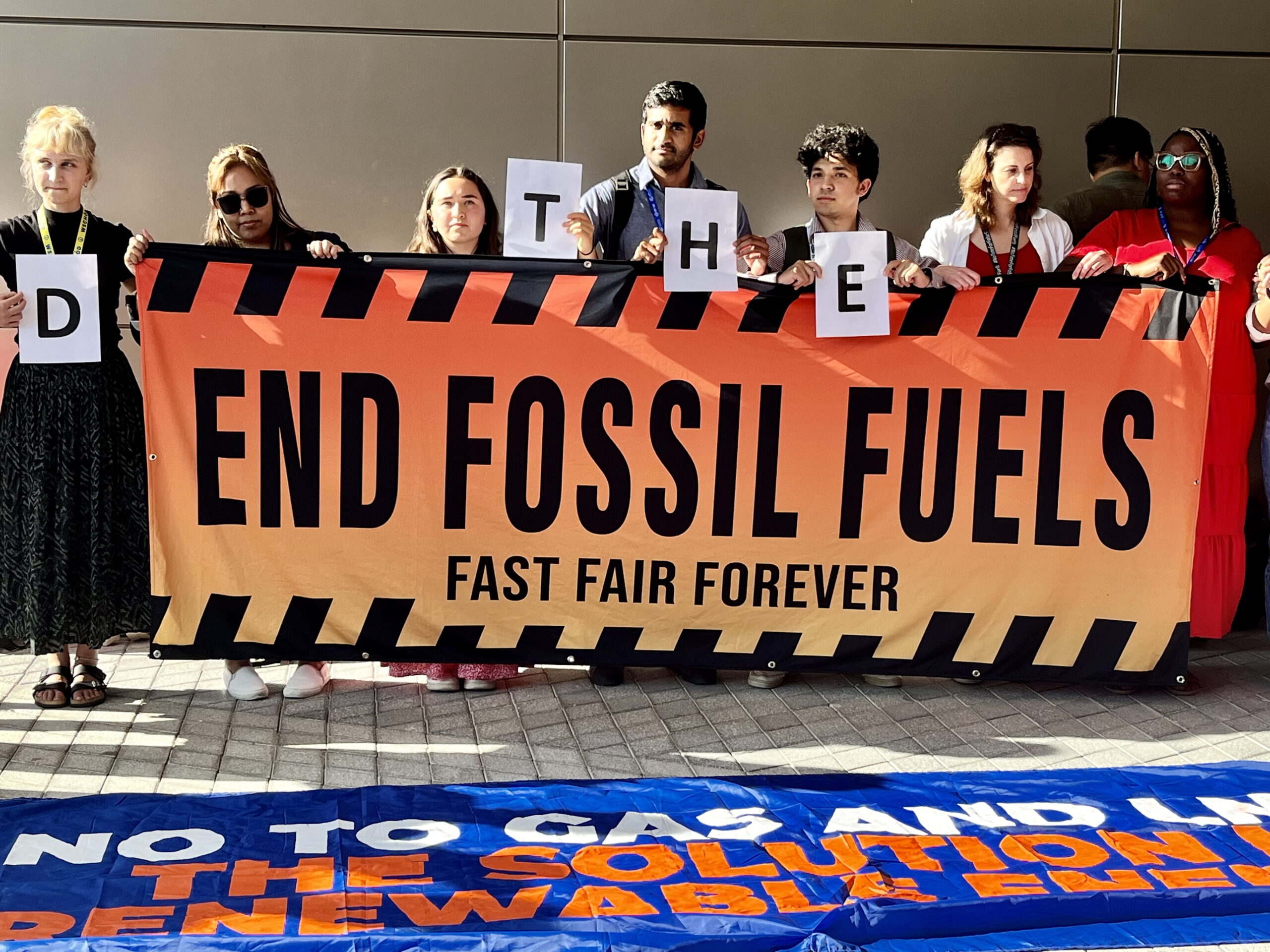
URGENT CALL Climate activists gather outside the main venue of the COP28 talks in Dubai on Sunday to reiterate their call for countries to junk fossil fuels. —IMELDA V. ABAÑO / FILE PHOTO
MANILA, Philippines — Clean energy think tank Center for Energy, Ecology, and Development (CEED) on Monday expressed concern that the Japanese government may be opting for energy partnership directions that obstruct the Philippines’ shift to clean energy.
CEED’s statement comes after Japan Bank for International Cooperation (JBIC) announced that it has signed a memorandum of agreement with three energy firms in the Philippines to roll out the Japan-led Asia Zero Emission Community (AZEC) platform in the country.
CEED Executive Director Gerry Arances said that AZEC has been “repeatedly denounced as a ploy to promote detrimental energy in developing countries in Asia, particularly with fossil gas and unproven fossil-friendly technologies.”
READ: Renewables: A matter of survival
“That critique is affirmed by JBIC’s partnership with the Philippines’ biggest fossil fuel champions. Japan, clearly, is championing gas as ‘bridge fuel’ deception at the cost of the Philippines’ climate ambitions,” he was quoted as saying in the think-tank’s statement.
The International Institute for Sustainable Development previously stated on its website that bridge fuel refers to energy sources that are said to help countries make the transition from coal and oil to cleaner energy.
Through AZEC, an estimated 23 gigawatts of energy will be generated by the use of liquefied natural gas (LNG) which CEED said would raise the share of fossil fuels to 80 percent of installed capacity.
“With this development, the Japanese government and, by extension, the Philippine government are revealing a clear lack of commitment to a genuine renewable energy transition,” Arances said.
“This is unacceptable for a country facing some of the worst impacts of the intensifying climate crisis and where fossil fuel-based power generation is causing death and destruction in vulnerable communities,” he added.
The think-tank leader further noted that the Philippines has abundant renewable energy sources which makes the 100 percent transition to clean energy possible.
“The focus should be on unlocking this, and not putting up more gas,” Arances stressed.
Trilateral meeting
Following JBIC’s deal with three energy firms in the Philippines, CEED said that energy advocates in Japan and the Philippines have their eyes peeled on the results of the trilateral meeting between Manila, Tokyo, and Washington D.C. slated for this week.
“LNG champions Japan and the US should use the upcoming talks to make amends and ensure the prioritization of renewables in the Philippines and other emerging economies in the region, not gas or false solutions,” Arances urged.
READ: Think tank warns vs use of imported LNG
He further said that the trilateral meeting results will be a “test” of the Marcos administration’s commitment to the Philippines’ shift towards renewable energy.
“President Marcos entered office with a pledge to make renewable energy its top climate priority, but its execution has so far been half-hearted,” CEED’s leader noted.
The trilateral summit between the countries will be held on April 11 at the White House in Washington D.C.
“At the summit, the three leaders will discuss trilateral cooperation to promote inclusive economic growth and emerging technologies, advance clean energy supply chains and climate cooperation, and further peace and security in the Indo-Pacific and around the world,” United States’ Press Secretary Karine Jean-Pierre previously said of the summit’s goals.

